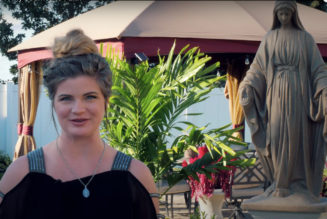“No social group…can survive without constant informal contact among its members.”
“The hearth, the place where food was made and eaten, was the heart of family life.”
A Pattern Language, by Christopher Alexander, et alia
With persistent centrifugal factors eviscerating our home life, we feel discouraged, even overwhelmed.
The term ‘crisis’ is bandied quite a bit—undoubtedly, often with good reason today. This is a time of crisis in multiple aspects of human life. Some crises are more remote in their causes and thus more difficult for the common man to address. I am not sure what to do, for instance, about the things stuck in the ports of our nation.
Crises closer to home are different. Their effects more proximate, they call with urgency for special attention. I will focus on one that is squarely, indeed physically, within the four walls of home—yours and mine. Though less obvious since we have become used to it, this is a crisis of civilizational proportions. Or perhaps I should say of individual proportions: i.e., the individual persons we care about most.
Our homes have lost a physical center. And so, we have no place that daily draws us together, whether by necessity or by choice, where we live in mutual presence; where we can be together as only human persons can, in body and soul, in mundane but natural activities.
I mean a space of human proportion—fitted to the number of people that live in our home and those ‘guests’ that are nearly-household-members; a space that by its physical constitution fosters something we so crave and need: sustained shared life and real presence.
Such a space can have varied forms, but it must have certain characteristics. It is a space for good work—the kind of work that can be done together, or at least in the presence of others, especially by hand. It is a space for real leisure—in the sense of meaningful, rich, shareable actions. It is comfortably furnished, but not posh—as such would distract. It is open and welcoming, yet intimate, so not exposed and public.
Traditionally, the hearth was just such a space. Because of what was done there—work, eating, and leisure, it was the beating heart of a vibrant household body.
We can rediscover and remake such a space. It begins with a vision and a will: a vision of rich, shared life, and a will to do all we can to actualize it. Such is in our power.
Consider some concrete suggestions of A Pattern Language:
“Make the kitchen bigger than usual, big enough to include the ‘family room’ space… Make it large enough to hold a good big table and chairs, some soft and some hard… and make it a bright and comfortable room.”
And then there is this gem: “A group of chairs…these are the most obvious things in everybody’s life—and yet to make them work, so people become animated and alive in them, is a very subtle business. Most seating arrangements are sterile, people avoid them, nothing ever happens there. Others seem somehow to gather life around them, to concentrate and liberate energy.”
Imagine! Chairs that gather life around them, concentrating and liberating human energy, human life. This can be the stuff of our reflection and intentionality. Perhaps with a little help from others, we can craft a space that itself crafts life.
To do this is to take a great step toward addressing the crisis of our day. Human life, as all life, requires and responds to a congenial context. Our nature points the way.
The human body itself is fitted to be the place, as it were, of human life in all its richness. The human house should be likewise so fitted. We had no part in designing our bodies. But how we design and inhabit our houses, the homes of our embodied life, is in our control. Here is the primordial context to enact wisdom, to craft human life.
Perhaps we cannot change certain features of our living spaces. We can, however, reimagine, reconfigure, and reanimate them with a new vision. And we can start by choosing one space to be the heart of the home, and invest it with our heart. It will be something answering to the name of ‘hearth.’
We need to learn from traditional patterns of life in the home—considering for instance the perennial importance of physical substances, such as wood, stone, metal, and fire, and how these intersect with food and its preparation and consumption, as well as with other home-arts and home-leisure. At the same time, our space must answer to something we can achieve today.
We can craft this space so that it will reflect our priorities, precisely by its evoking and facilitating certain human activities. These activities are or should be ‘ordinary,’ but they now call for extraordinary attention. And they offer us extraordinary fruits, every day.
~ ~ ~
**Special Announcement: COMING NEXT WEEK for LifeCraft Members (see below), a new library of short videos. Concepts Made Clear. Clearer thinking, one concept at a time. The first group of videos will clarify concepts of household and home. **
Christopher Alexander (1936–) was born in Austria and is currently an emeritus professor of architecture at the University of California, where he taught for almost forty years. He has been widely influential through his theories of architecture, and is especially known for the 1977 book he co-authored, A Pattern Language.
“Well, you see, my property is enough to supply me with all my needs… Socrates, in Xenophon’s Estate Manager The wise help us to see better. By looking through their eyes, we learn to see things more as they are. One great fruit is that we can be more grateful….
“Friendship helps the young, too, to keep from error.” Aristotle, Nicomachean Ethics Aristotle is intent on showing how friendship is necessary in every stage and condition in life. With characteristic insight, he points to the precise need it fulfills in each….
But love, first learned in a lady’s eyes… Shakespeare, Love’s Labours Lost It has been said that woman specializes in loving. There is a profound truth in this. It is not that men do not know how to love or are not called to love. But women, especially in their…
Husband, father, and professor of Philosophy. LifeCraft springs from one conviction: there is an ancient wisdom about how to live the good life in our homes, with our families; and it is worth our time to hearken to it. Let’s rediscover it together. Learn more.

Join us!
Please enter your email address to receive a Wednesday Quote and Reflection once a week. I would be honored to be partners in mining the wisdom of the ancients.
You have Successfully Subscribed!
Join Our Telegram Group : Salvation & Prosperity











